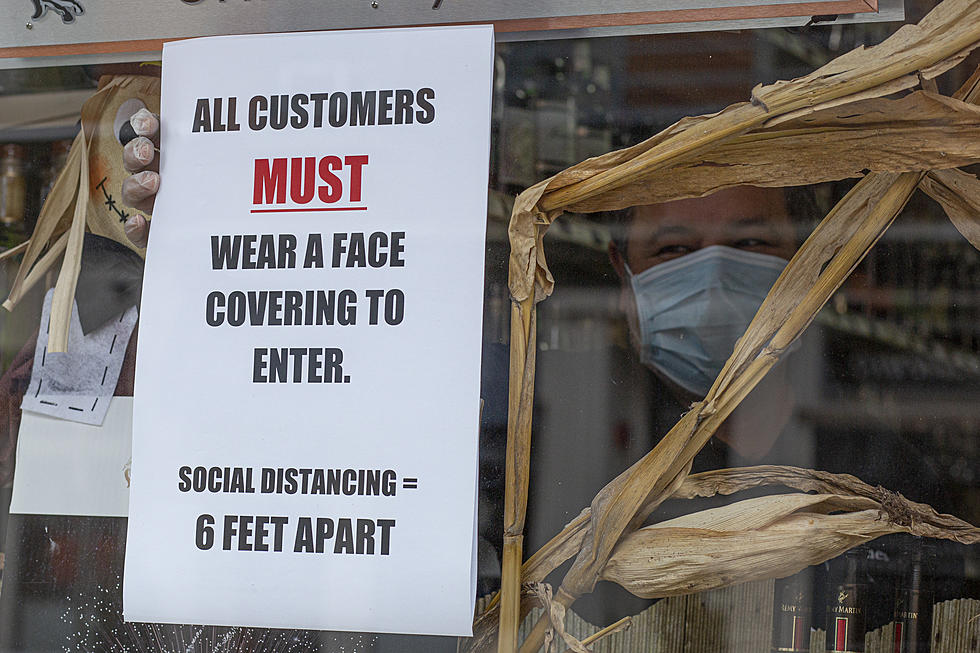
NJ May Boost Workers’ Comp When Essential Workers Killed by COVID-19
Dependents of essential workers who die in the course of employment due to contracting COVID-19 would receive extra workers’ compensation benefits under a bill scheduled for a vote at Monday’s Senate session.
State Sen. Troy Singleton said the bill, S2476, is a way to recognize and honor as meaningful the service during the pandemic of essential workers, many of whom are lower-paid hourly workers.
“This is an opportunity for us to put a marker down that these lives are important and the work that they do is truly essential and making sure that we respect that,” Singleton said.
The bill could raise the taxes paid by businesses, who solely finance the Second Injury Fund that is used to pay for such benefits.
John Rogers, director of legislative affairs for NJM Insurance Company, said the bill creates a new inequity in the workers’ comp system by providing a new benefit for a certain group of workers.
“And we believe from looking at these bills in the past that the potential cost of providing the COLA could be quite significant,” Rogers said.
Eric Richard, legislative affairs director for the New Jersey State AFL-CIO, said the bill would boost the benefits of about 500 people by a couple hundred dollars a year. He said essential workers are being made to take health risks others haven’t had to while working from home.
“It’s really nice for us to look up at Blue Angels flying in the sky and corporate commercials on television telling us how great our essential workers are. Our essential workers need bills like this to make sure that they’re cared for during this pandemic and moving forward,” Richard said.
Among the issues cited by business groups concerned about the bill is the prospect of future deaths from chronic health issues stemming from COVID-19, making the cost of the extra benefits potentially massive. Sen. Paul Sarlo, D-Bergen, said he doesn’t expect the number of essential workers who die from work-related COVID infections to grow unexpectedly in the future.
“Unless I missed a memo, I’m not aware of any long-term effects from COVID after people have fully recovered,” Sarlo said. “The recovery period takes a little longer in some than others, but I’m not aware of any long-term effects.”
“Neither am I, sir,” Singleton said.
“Unless I missed something,” Sarlo said.
Doctors are still learning about possible long-term effects from the new disease, such as blood clots, heart damage and lung damage. Christopher Stark, Northeast regional vice president of the National Association of Mutual Insurance Companies, said that uncertainty is a reason to wait.
“We don’t know the long-term effects of the virus right now and what it means for our society,” Stark said.
“Take time to learn more about this virus and its long-term implications before we pass something that could have very significant long-term financial implications,” he said.
Monday’s vote would be the second step the state Senate has been taken steps to expand workers’ compensation coverage for essential employees who contract coronavirus. Last month, it passed a bill 27-10 that creates a rebuttable presumption that if essential workers get sick, it happened on the job.
Senate President Steve Sweeney, D-Gloucester, said S2380 would help people earning small salaries such as clerks at grocery stores and pharmacies who are being exposed to risk.
“We did this for police and fire not too long ago and it was the right thing to do for them, and I think it’s the right thing to do to people who don’t have a choice but to go to work,” Sweeney said.

SEE PHOTOS: Lighthouses of New Jersey
More From WPG Talk Radio 95.5 FM










